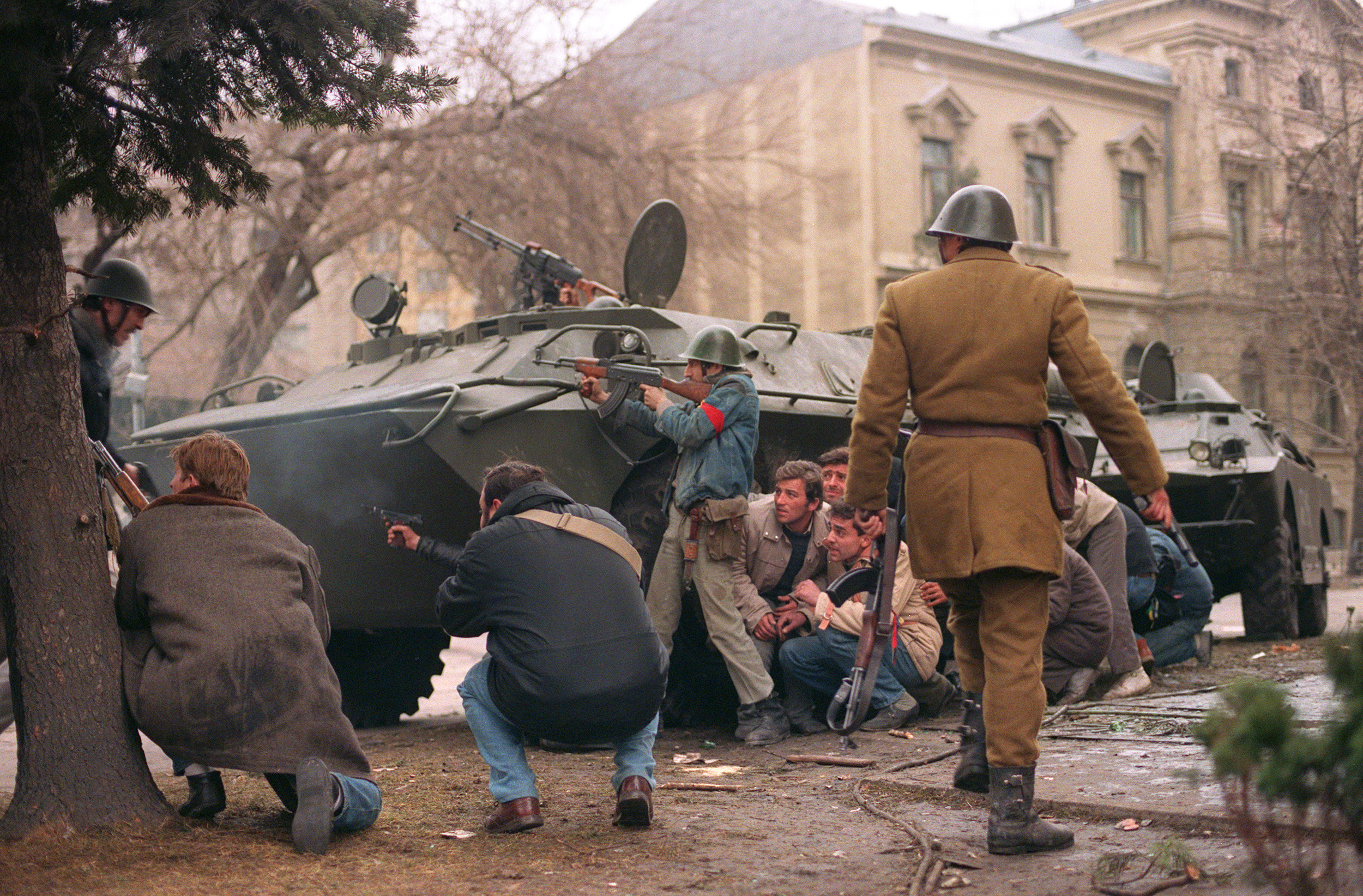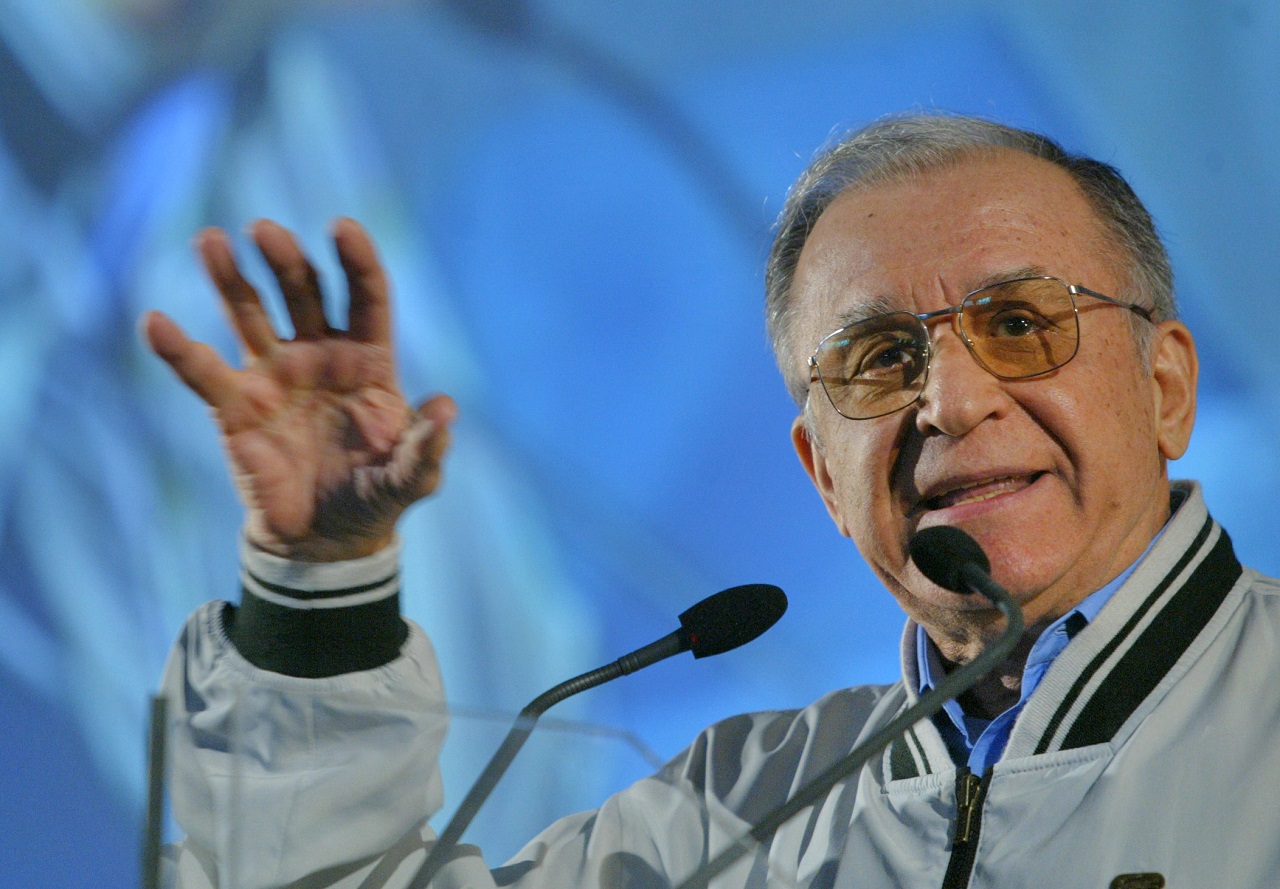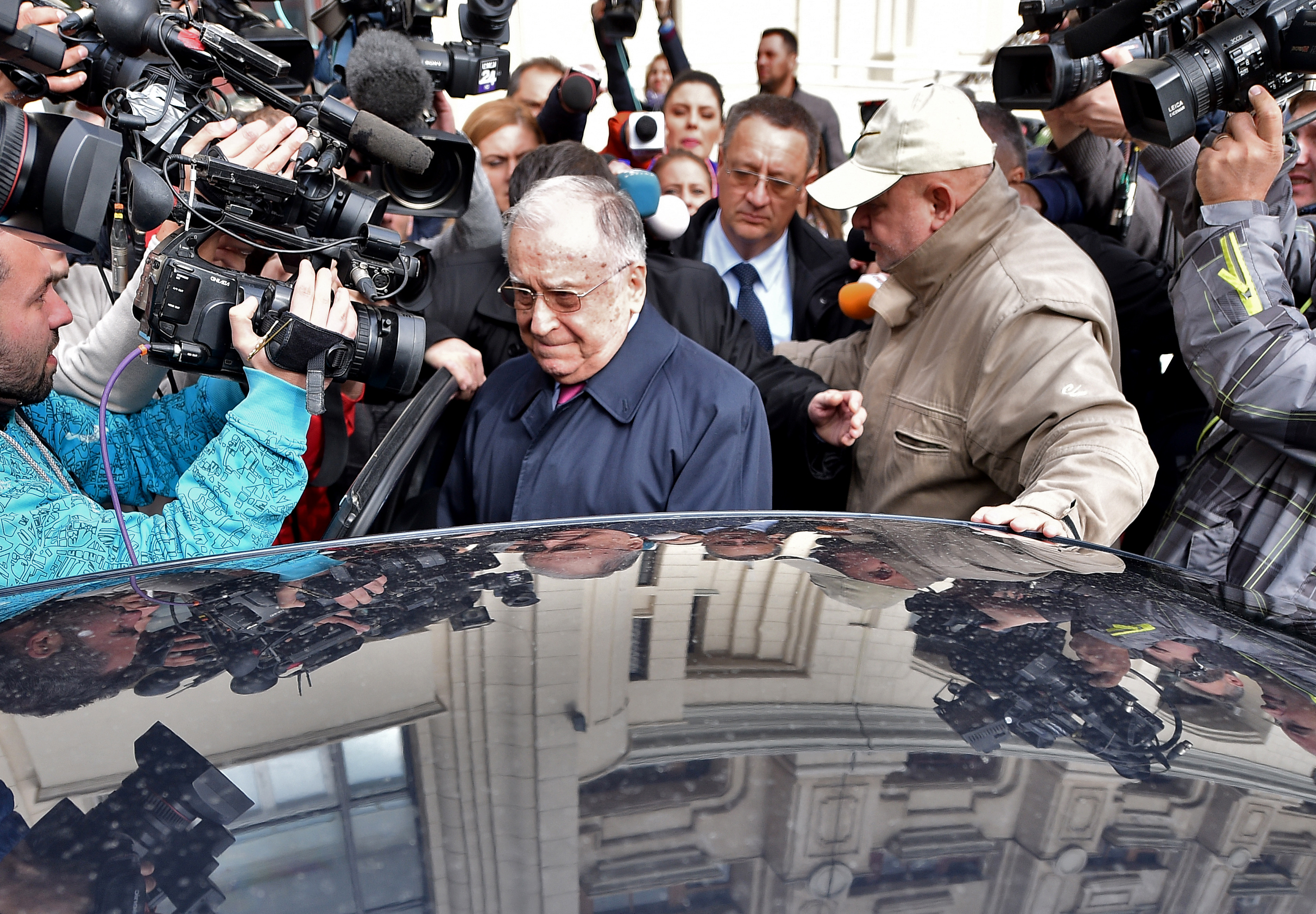Former Romanian President Ion Iliescu, the country's first freely elected president after 1989, has died.
The 95-year-old politician, who had lung cancer, died at the Agrippa Ionescu Hospital, run by the Romanian Intelligence Service (SRI), where he had been receiving intensive care for the past two months. Transtelex reports that Iliescu has not appeared in public in recent years, but he regularly followed public events on his blog, most recently congratulating Nicușor Dan on his election and inauguration in May.
Ilie Bolojan, the liberal prime minister of the four-party coalition government in Bucharest, described Iliescu in a statement published by the government's press office as the political leader of Romania after 1989, its former president, and the leader of the most important left-wing party, during whose presidential mandate such important decisions were made regarding the future of the country as the 1995 Snagov Declaration, which set the country's European and Euro-Atlantic integration as an objective, and the 2003 constitutional amendment that sanctioned Romania's new alliance system.
“With his departure, a significant era in the country’s contemporary history, following the December turn of events, in which public life was fundamentally transformed, has come to an end. From today on, Ion Iliescu will become part of history and the subject of its fair analysis. My condolences to the grieving family, Ion Iliescu’s friends and all his relatives.”
– wrote the Romanian Prime Minister.
Iliescu, who had previously participated in the leadership of the Communist Party but was sidelined by party secretary general Nicolae Ceaușescu, seized power on December 22, 1989, in the name of the National Salvation Front (FSN), formed together with several army generals, taking advantage of the popular uprising that began in Timisoara and the dictator's attempt to escape.

In 1990, in the first free elections, he was elected president of the country with 85 percent of the valid votes, and in 1992, he won with a 61-39 percent vote margin against Emil Constantinescu, the candidate of the Romanian Democratic Convention (CDR).
In 1996, he lost the election to Constantinescu by 54-46 percent, but in 2000 he returned to the presidency for another four years, after facing Corneliu Vadim Tudor, the leader of the ultra-nationalist Greater Romania Party (PRM), in the second round of the election, whom he defeated by 67-33 percent.

Ion Iliescu served in the Romanian legislature as a senator for the party he founded, which succeeded the Romanian Communist Party (PCR), from 1996 to 2000 and from 2004 to 2008. His party, which, after several name changes, has been the Social Democratic Party (PSD) since 2001, remained a dominant political force in the Romanian parliament for 35 years.
Contradictions
Iliescu's exact role in one of the most serious waves of violence in post-revolutionary Romanian history, the"miners' march", remains unclear. In June 1990, four people were killed, two were raped, more than 1,300 were injured, and more than 1,200 were unlawfully deprived of their personal freedom in the violent suppression of demonstrations demanding a break with the previous regime and those associated with it. The former head of state also thanked the miners for their"help" at the time.
The Romanian Supreme Prosecutor's Office attempted to bring Ion Iliescu to trial several times for the 1989 revolution and the"miners' trial", but these cases never reached the substantive trial stage because the Supreme Court repeatedly returned the case files to the prosecution and ordered it to start the criminal proceedings from the beginning, citing that the evidence collection was not done legally.

“Ion Iliescu was a promise. In 1989, he was considered an anti-establishment intellectual, who was also discussed by Radio Free Europe, and who eventually became the leader of Romania. Great hopes were placed on him, but these were quickly dashed because Iliescu entered into an alliance with the system that he condemned in principle. Or he was dominated by that system,” political scientist Cristian Pârvulescu assessed Iliescu’s first mandate to Hotnews.
However, Iliescu's reputation was improved by the fact that during his last presidential term, in 2004, Romania joined NATO and concluded accession negotiations with the European Union, Romania's participation in the Holocaust was recognized, and the Elie Wiesel Institute was founded. Regarding the latter, the political scientist quoted above said:
“it probably wouldn’t have happened if Ion Iliescu hadn’t been president.”

